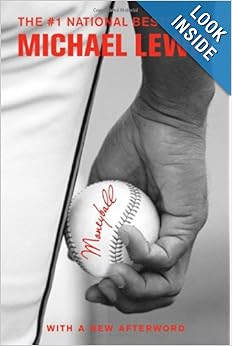Think back to the best teacher that you ever had.
How many teachers did you think of? I immediately remembered six.
Miss Harriger - 2nd grade Inez Elementary School - Albuquerque, New Mexico
Miss Hixenbaugh - 4th grade Inez Elementary School - Albuquerque, New Mexico
Mrs. Chapman - 5th grade Inez Elementary School - Albuquerque, New Mexico
(Evidently I had a really good experience at Inez Elementary School!)
Miss Getz - 9th grade Language Arts Monroe Junior High - Albuquerque, New Mexico
Miss Ely - 10th grade English Sandia High School Albuquerque, New Mexico
Coach Braig - Latin I and II Sandia High School Albuquerque, New Mexico
Great teachers - everyone of them.
Why did I believe that they were so good?
They respected me. I had a voice. The valued my opinions and ideas. They gave me freedom. I knew what to expect day to day. They treated everyone in the class fairly. They made me work hard. They challenged me to become better.
I thought of those teachers as I read Malcolm Gladwell's book
David and Goliath: Underdogs, misfits, and the art of battling giants. In his chapter on the limits of power Gladwell talks about the principle of legitimacy.
It turns out, according to Gladwell, that leading and moving and motivating and encouraging and managing people turns on this principle of legitimacy.
Students view good teachers as legitimate. Students respect the teachers because we believe in them. As a result, we follow those teachers. We follow them to places that we never thought we could go. We become better than who we thought we were.
Students also are very sensitive to teachers who are not legitimate. These are the teachers who cannot relate to students, do not believe in students, have poor classroom management skills, do not challenge students, and who do not move students forward.
I can think of some of those teachers as well.
As I read Gladwell's chapter I also thought about the educational reform battles we are waging. Why are the battles so fierce?
It is possible that the battles are so fierce because those of us in education do not view the "reformers" as legitimate.
The "reformers" don't give educators a voice.
The "reformers" keep changing the rules.
The "reformers" treat groups differently.
The "reformers" are not actually in schools working with students every day.
The "reformers" talk about the changes that need to take place but they have never actually demonstrated that they have the ability to make these changes.
As a result, those of us in education don't believe the reformers.
Do schools need to improve? Absolutely.
But does that mean teachers are terrible, administrators are incompetent, and public schools are a failure? Of course not.
But the rhetoric of the "reformers" castigates educators. Instead of trying to listen to our voice or inviting us to participate in the dialogue, the reformers push us away.
They know best - that is the message they send.
As a result, those of us who work with students and parents every day, those of us who understand the variety of needs within the students who come to our schools every day, those of us who have committed our lives to being with and beside students, don't believe the reformers.
I am not suggesting that the reformers do not value students and that they do not genuinely want schools to improve.
But the reformers by pointing fingers and claiming to have the answers undermine their legitimacy and go against Gladwell's points on the limits of power.
As Gladwell states, "when people in authority want the rest of us to behave, it matters - first and foremost - how
they behave."





















